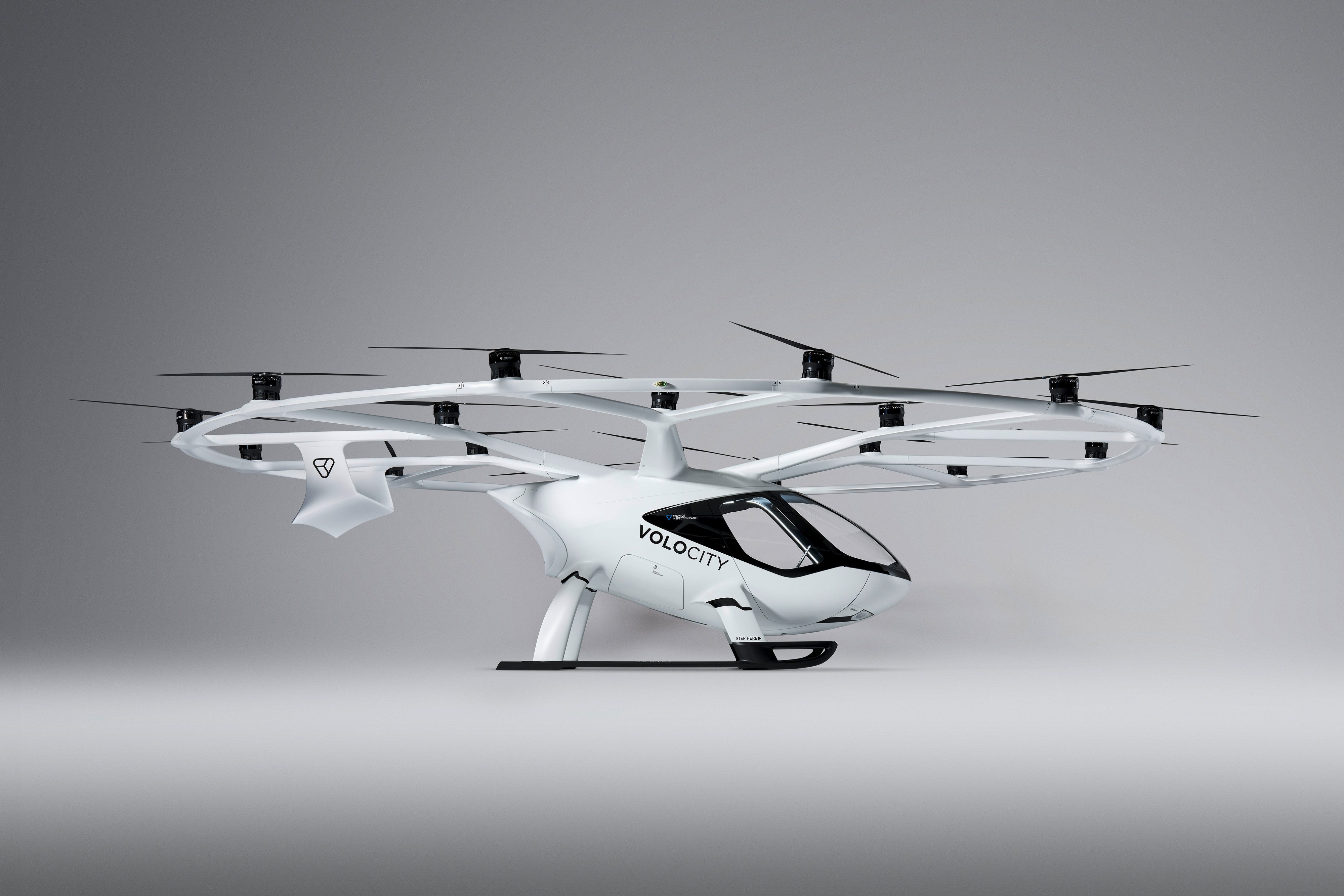Volocopter this week went public with its plans to introduce air taxi operations with its eVTOL aircraft into the U.S. market. In a January 15 announcement, the German startup said that the FAA has accepted its application to concurrently validate the EASA type certification it expects secure in the next two or three years.
The company said that its application was accepted by the FAA on December 22. According to a spokeswoman, the U.S. agency has indicated a willingness to consider an alternative basis for certification to the new Special Condition VTOL (SC-VTOL) certification process now being finalized by EASA. This would be the new 14 CFR 21.17 (b) special class, which is intended for aircraft that don’t fit the amended versions of existing Part 23 rules for eVTOL designs with conventional takeoff capability (as per 14 CFR Part 23 Amendment 64) or Part 27 for rotorcraft (as per 14 CFR Part 27).
Later this year, Europe’s EASA is expected to confirm means of compliance for its new Special Condition VTOL certification process, and Volocopter is pursuing this approval for its two-seat, all-electric VoloCity aircraft. Volocopter already holds EASA Design Organization Approval, giving it the required license to develop and build certified aircraft.
“What EASA did when building SC-VTOL was to combine CS-23 Amendment 5 [EASA's equivalent to the U.S. 14 CFR Part 23 Amendment 64] with additional safety objectives that it derived from CS-27 [Part 27] for the relevant aspects of the aircraft,” said Volocopter in a written explanation. “This is exactly what FAA has in mind when developing the certification basis per 21.17 (b). This in turn allows the FAA to widely accept what EASA is requiring from the product. This will lead to great overlap in requirements, offering the potential for a smooth and straightforward validation through FAA.”
Volocopter said it sees potential to launch intra-city air taxi services in major metropolitan areas such as New York, Los Angeles, San Francisco, and Washington, DC. Initially, the VoloCity would fly with a pilot, meaning only one passenger seat would be available, but the aircraft is intended for autonomous operations. Observers have questioned how Washington, DC, could be considered for eVTOL air taxi services, in view of the no-fly zone in place there for security reasons.
In 2020, the company announced its involvement with local partners looking at potential air taxi operations in Paris and Singapore. It has previously explored Dubai as a possible launch market. In 2018, Volocopter conducted an indoor, tethered demonstration flight (behind protective glass) in Las Vegas during that year’s Consumer Electronics Show.
Working in partnership with UK-based Skyports, Volocopter has developed the VoloPort concept for the vertiport ground facilities it envisages for the planned air taxi services. The company says it is already has had contact with officials in some of the U.S. cities it has in mind.
“At the beginning, we can refit the existing helipad infrastructure for our purposes,” Volocopter’s spokeswoman told FutureFlight. “It will just need a few adaptations so we can perform our battery swap, for example. Looking further down the line, we are working together with airports and real estate partners to provide ground infrastructure.”
Volocopter already has U.S.-based partners in the shape of two of its investors, Intel and Micron. The planned air taxi services will be managed through its VoloIQ customer interface platform.
In November 2020, rival eVTOL aircraft developer Lilium announced plans to establish longer-range services in Florida. These are set to begin out of a purpose-built vertiport to be built in partnership with Tavistock Development at its Lake Nona project near Orlando. The operation, using Lilium’s five-seat aircraft, is expected to begin in 2025, and for that aircraft, the manufacturer is pursuing certification under EASA's SC-VTOL and FAA Part 23 rules.
In December the envisaged U.S. market for eVTOL air taxi services was shaken up by the news that ride-hailing giant Uber had sold its Uber Elevate platform to Joby Aviation. Uber had been a standard-bearer for so-called urban air mobility operations, and Joby was one of ten manufacturing partners for its planned network. Joby intends to launch its own services, perhaps picking up on Uber’s intention to start with Dallas and Los Angeles as early-adopter cities, but Uber’s departure from the nascent market has perhaps created a void that companies like Volocopter are now seeking to fill.
